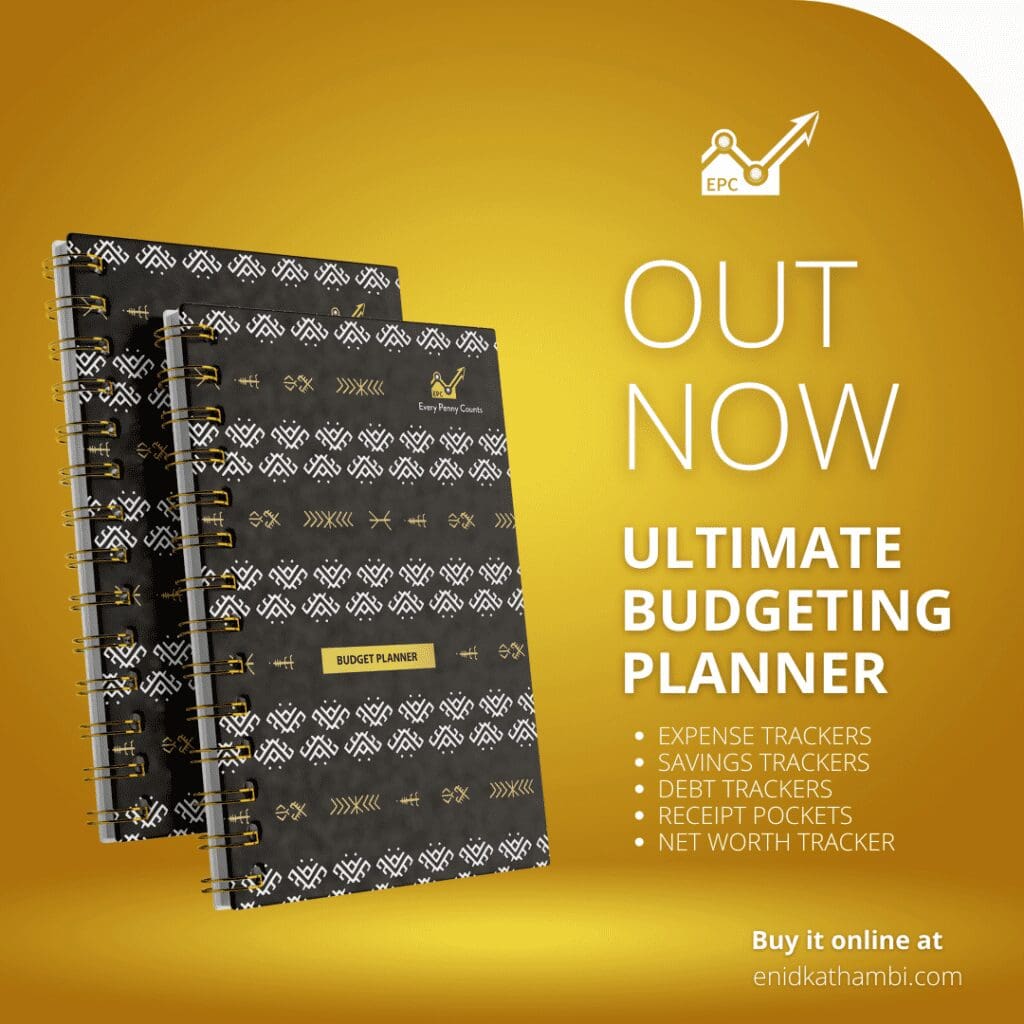
3 Types of Budget Planners for Your Budgeting
Chances are, you have used a notebook, a journal or a spreadsheet for personal and work purposes. Does it help you stay on top of your appointments, assignments and other planned activities? Probably yes. That’s why I recommend using a planner for your budgeting.
Budgeting is one hurdle I have struggled with. I cannot sing this enough times, which is probably boring to you now, assuming that you have been following my content. Over the years, I have tried several budgeting methods and a few tools, making the process easier with time. In fact, it has become more fun to plan my finances when using particular tools.
While budgeting apps are an excellent tool for financial planning, I have never been a great fan. There are other options, especially if you are concerned with privacy, endless ads and high subscription fees. So, let’s talk about alternatives.
Types of Budget Planners to Consider
Fortunately, you have a variety of options to choose from, depending on your taste and preferences. I have learned from experience to try more than one of these options and financially settle on one that suits you most. You can settle for more than one, too.
Physical Budget Planner
Are you a fan of writing and noting things down? Do you process stuff better when it is in written form? Then, a physical budget planner is an excellent option. There are numerous budgeting planner books, each with varying price ranges and features.
I have been using a physical budget planner for the better part of 2022. I loved having to take a moment, reflect and write down stuff. Plus, having the planner on my desk always reminds me to take a moment and review my finances.
Some of the features I recommend looking for in a budget planner book include:
- Undated – an undated planner allows you to start using it anytime without worrying about messing up the set dates on the book.
- Available worksheets and trackers – look for a planner with options to track budgeted and actual amounts of your cash flows, including daily spending. Additionally, consider one with other worksheet prompts, like financial goals sections, holiday planning, net worth tracker and an annual page-to-page overview of your finances.
- Accessories – not all planners will have accessories. But if you get them, like stickers, bookmark ribbons, and pockets, it makes using the planner easier and more fun.
Need a budget planner? Get a copy of our physical budget planner here

Spreadsheet Planner
The one thing I love about spreadsheet planners, Google Sheets or Excel is the automation. First, unlike a physical planner, where you have to do the calculations manually, spreadsheet planners already have these set. All you need to do is enter the dates and amounts of your transactions, and the set formulas auto-populate data for you. Second, you can always create a copy of the existing worksheet and reuse it for the next year or month. That makes it a one-time purchase that you can keep reusing.
There are free templates to use. For instance, both Excel and Google Sheets have free budgeting templates. For Excel, open a new Excel Worksheet, click on File and the pop-up page will have templates at the top. From here, you can click on More Templates to see other available options. If you prefer Google Sheets, open your drive and right-click. Choose Google Sheets from the menu, then From Templates.
Besides these free options, you can get more extensive spreadsheet planners from sellers on platforms like Etsy. These will give you more budgeting options, like setting up and tracking your sinking funds, net worth, debt payments, calendar synced to monthly bills and subscriptions trackers.
Need a spreadsheet planner? Get yours here in KES or USD or multi-currency currency use

EPC Annual Budget Spreadsheet
Digital PDF Budget Planner
Thanks to PDF annotation apps, you can highlight, add notes, comments and basically ‘write’ on a PDF document on your screen. These work better when tablets with a stylus pen, which makes the annotation feel like you are basically writing on a book.
Depending on the available content, some planners can contain numerous pages, sometimes more than 400. While these make them heavy and complicated, designers link pages for easier usage and accessibility.
Digital planners are an excellent option if you want the feel of using a physical book without actually using a physical book. Plus, tablets are portable and always with you. Your information will also be private since that’s a personal gadget. If you get an undated digital planner, you can make copies and reuse them for the following years, eliminating the need to buy another budgeting planner unless you need one with more features.
Related read: What To Do If a Budget Is Not Working For You
Advantages of Using a Budgeting Planner
1. Get Organised
If your finances are a mess — you have no idea how much you spend, your savings, investments and debt payoff progress and bill are scattered — there is no better way to organise your finances than with a budgeting planner.
A comprehensive planner will have individual sections for organising every transaction. If you choose a well-curated physical book, you will have bill organisation options, like pockets and cash envelopes.
2. Track Your Transactions
Besides getting organised, planners help you track your transactions, including income, debt payments, savings, investments, bills and expenses. Most available budget planner options allow you to compare the budget vs actual amounts of each category. This way, you can tell whether you are overspending and what categories are over your budgeted limits. It also makes it easy to stay on top of your financial position, including debt management and net worth.
3. Planning Your Finances Ahead
It’s good to know beforehand how much you earn and spend; that’s why budgeting helps. Taking time before the month or year starts to plan how much you intend to spend and your income goals.
While having the figures at your fingertips or the back of your head is good, using a planner enables you to plan for future financial goals. And, you can always look back in time, analyse your money habits and make the necessary changes.
4. Developing Healthy Financial Habits
The road to financial success and independence requires discipline and patience. That’s why consistent budgeting is a must, and a budgeting planner helps you with this.
In Conclusion
Money management looks overwhelming. And it can be, especially if you are not using the right tools. A budget planner can be handy, making the process easier and more enjoyable. There is nothing better in your finance journey than having a way of looking at your finances and knowing where you stand. The above budgeting planner options will help you create healthy financial habits and stay accountable and motivated.






